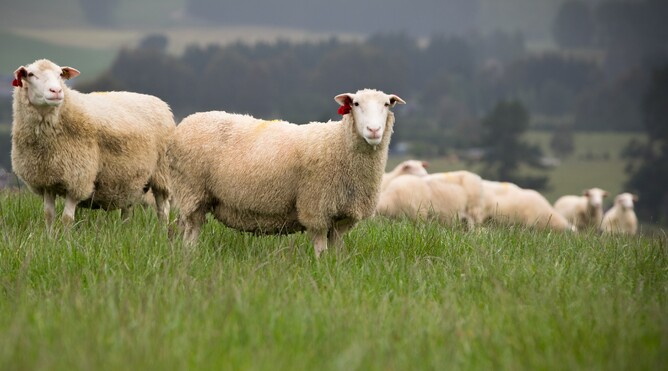Suppliers needed to meet global demand in booming sheep milk industry
On the back of significant growth during the 2018/2019 financial year, sheep milk producer Spring Sheep Milk Co says the timing has never been better for farmers looking to get involved in the industry.
Spring Sheep business manager Thomas Macdonald says international demand for New Zealand sheep milk products is strong, and he’s noticed more farmers making inquiries about converting their dairy farms to sheep milk.
“Heading into our fifth dairy season we are noticing a lot more interest in the industry,” says Macdonald. “Last year I might have received around one inquiry a month from a farmer looking at their options, but those inquiries are now coming in thick and fast.”
With Spring Sheep being demand-led, Macdonald says they will only bring on more suppliers when the demand is there, which it certainly is now.
“We currently have 4000 sheep being milked, however strong customer demand means we are now looking to grow sheep numbers by bringing on new supplier farmers.”
With demand predominantly coming from Asia, driven by consumers’ increasing preference for alternative milks and nutritional focused products, Macdonald says growth with this market is very much on Spring Sheep’s agenda.
“Last year we saw our productivity double thanks to new genetic lines imported from Europe. Previously New Zealand-bred ewes were producing 120 litres each per season, but the new, high-performing genetic lines have the potential to increase production to over 600 litres per ewe per season.
“Most farming systems need about 250-450 litres per ewe per season to achieve a good return, so the improved productivity we’re seeing presents a good opportunity for farmers considering a conversion to sheep dairy farming.”
With two farms near Cambridge and one in Reporoa, near Rotorua, Spring Sheep has just finished its first season successfully running three farm system trials – full grazing outdoor, hybrid indoor-outdoor grazing and large scale hybrid models.
Milk from its farms is then processed at Melody Dairies’ spray drier at Waikato Innovation Park in Hamilton.
Macdonald says dairy farmers in the Waikato region, being within the two-hour travel zone for processing, are ideal future suppliers.
“The Waikato region is rich dairy country, and the pastoral farming practices and core skillset of dairy farming found here is easily transferred to sheep milk,” he says.
“The optimal sheep milking system in New Zealand requires the use of high-performance genetics, combined with a farming system that utilises our pastoral advantage. We now have those genetics available, and we’re looking to work with passionate, skilled dairy farmers with high-quality land.”
Macdonald says the growth in the industry is encouraging for farmers who are looking at sheep milk as a viable, high-return farming option. “As a value-added product, sheep milk isn’t at the mercy of fluctuating market prices so the farm gate price remains stable,” he says.
He recommends two farm models for those looking to get into the industry: a hybrid indoor-outdoor grazing model and a fully outdoor grazing model.
“The grazing model, a bovine-to-ovine conversion, is a former cow dairy farm that’s retrofitted with sheep milking equipment and fences. It is the lower cost of entry of the two models and is highly recommended for those looking to enter the industry.
“We can also provide great wraparound support for farmers, with a tailored farm support programme drawing on our own sheep milking expertise, access to genetically superior dairy sheep and farm data, training and the option for fully managed farms.”
And there are several positive environmental impacts for farms converting from cow dairy to sheep milk. “Converting to sheep milk doesn’t require any land use intensification, and there’s a positive impact on water use and nitrogen leaching,” he says.
“We partnered with AgResearch to undertake Nitrogen leaching trials on our farms, with results showing a 30% reduction in nitrogen leaching compared to an equivalent stocked bovine operation.”
Macdonald says the strong demand for sheep milk products from the market, combined with four seasons of operational experience on Spring Sheep’s farm group, paints a positive picture for the sheep milk industry.
“Our markets are rapidly educating themselves to the nutritional and digestive benefits of sheep milk products. It’s an exciting time to join the industry.”
To find out more on purchasing dairy sheep and supplier contracts, visit Spring Sheep Milk Co at the 2019 National Agricultural Fieldays at Mystery Creek, 12-15 June, at stand J22 (SheepMilkNZ stand).

